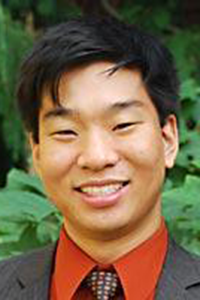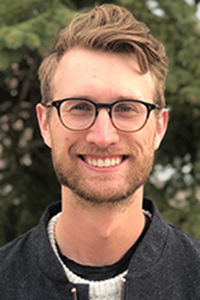
Duke Ph.D. Students Help Create Unique Undergraduate Summer Courses
Through Summer Course Development Grants, Ph.D. students learn about course design and teaching while enhancing undergraduate education within Duke’s departments
Approaches to learning and teaching are constantly evolving, and any curriculum benefits from periodic revision and new offerings. It takes time to develop new courses from scratch or even to redesign existing courses, though, and faculty members are already juggling a heavy load.
A new grant program supports departments in the development or redesign of undergraduate courses that will be offered regularly during Duke Summer Session. By involving Ph.D. students and drawing on experts from Duke Learning Innovation, the grants seek to foster innovative courses while helping doctoral students gain skills and experience.
Last year, nine departments received Summer Course Development Grants from the offices of Undergraduate Education and Interdisciplinary Studies. Here are two of them.
The Future of Ocean Use

Within the Department of Marine Science & Conservation, Ph.D. student Jon Choi worked alongside faculty members Rebecca Vidra and John Virdin to create a course entitled “The Future of Ocean Use.” Choi stated that the course grew out of a webinar series hosted by Oceans@Duke that highlights ways in which Duke researchers and alumni are working on ocean-related issues.
Vidra and Virdin wanted to make the webinars’ content more sustainable, so they applied for the Summer Course Development Grant and asked Choi to help develop a course.
At first, Choi struggled to decide how to create a cogent throughline for the course from the diverse webinars. He decided to focus on developing writing skills at the undergraduate level, using what he learned as a Duke Law student. Through two-page policy memos summarizing complex issues, students will hone their ability to think critically about the challenges facing the world’s oceans, consider the intended audiences for their writings, and improve their use of active voice and sentence structure.
The course begins with two weeks focused on learning critical writing and research skills, starting with an initial draft memo summarizing the rapid acceleration of human use of the ocean. During the following four weeks, students will craft two memos per week on a variety of topics, such as deep seabed mining, illegal fishing, small scale fisheries and offshore wind.
These memo assignments start with a prompt that places students in the role of a junior staff member who must brief people in different organizations.
To help students strengthen their writing, Choi built in numerous writing workshops and one-on-one meetings. By the end of the course, students will have written nine memos. They can then reflect on them and revise their five favorite memos for grading.
Beyond Ordinary Consciousness: The Science, Philosophy and Phenomenology of Contemplation

The Department of Psychology & Neuroscience was another recipient of a Summer Course Development Grant. Faculty members Bridgette Hard, Moria Smoski and Richard Jaffe teamed up to propose a new course along with Ph.D. student Joseph Diehl.
As an undergraduate student at Brown University, Diehl majored in contemplative studies, an experience that he loves to this day. He learned about the history and context of contemplative practices, and even got to try some of them out during ‘meditation labs.’
For the new Duke summer course, Diehl interacted with various staff and Duke Learning Innovation to figure out how he could adapt his Brown experience.
The grant included a three-day workshop on inclusive course design led by Duke Learning Innovation. The program focused on how student learning outcomes should inform course design, considerations for planning short-term summer courses, and leveling up on skills and tools needed to complete the course design by the end of the grant period. The teaching consultants also provided ongoing guidance as needed.
Diehl wanted his course to address the challenge of loneliness that increased over the past few years, exacerbated by the pandemic. “I’m hoping not just to create a class, but to build a community on Duke’s campus,” he said. He also hoped he could inspire some students to create a long-term contemplative practice beyond the class.
During the course, students will participate in meditation labs, learning about philosophical and religious traditions as well as the scientific applications of such traditions. Diehl included time for in-class meditation, while coursework will be done individually. He opted to divide students into three different groups, with an opportunity for each group to teach others about what they learn.
Both Choi and Diehl built valuable skills and received summer funding for their work last year. Their departments now have two innovative new courses that will add to their regular summer offerings for undergraduates.
Khilan Walker ’24 is a content writer in the Office of the Provost. He is majoring in political science with a minor in African & African American studies.